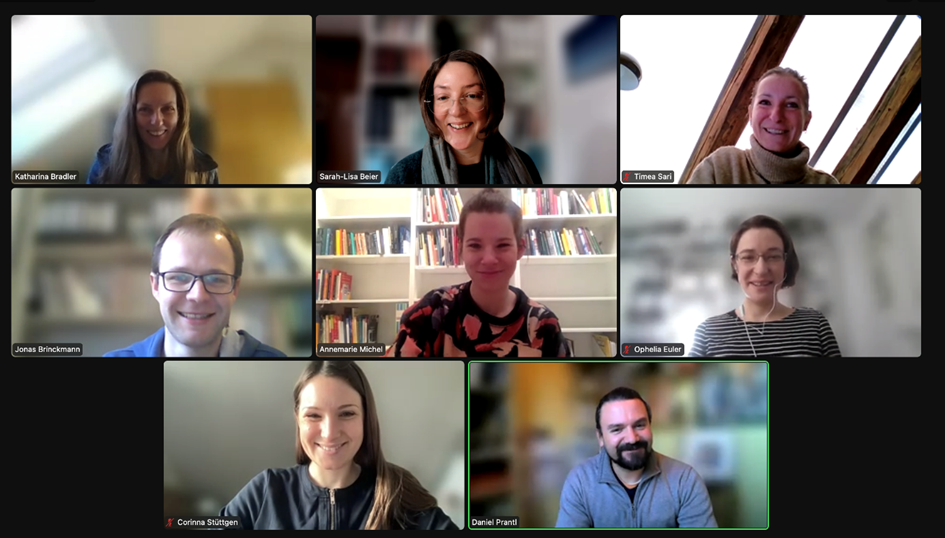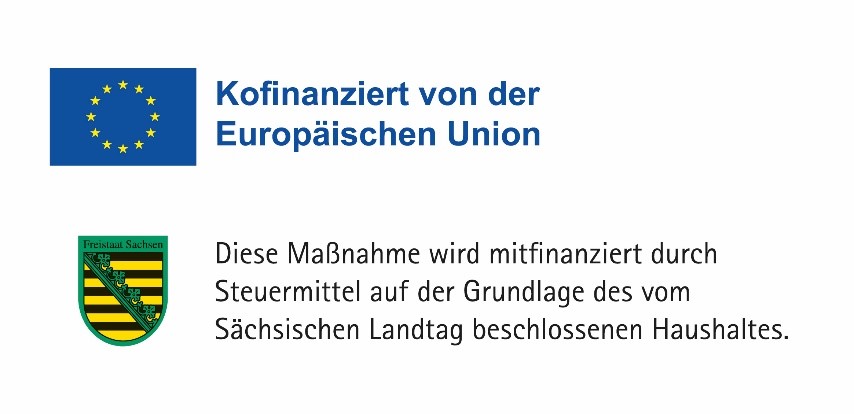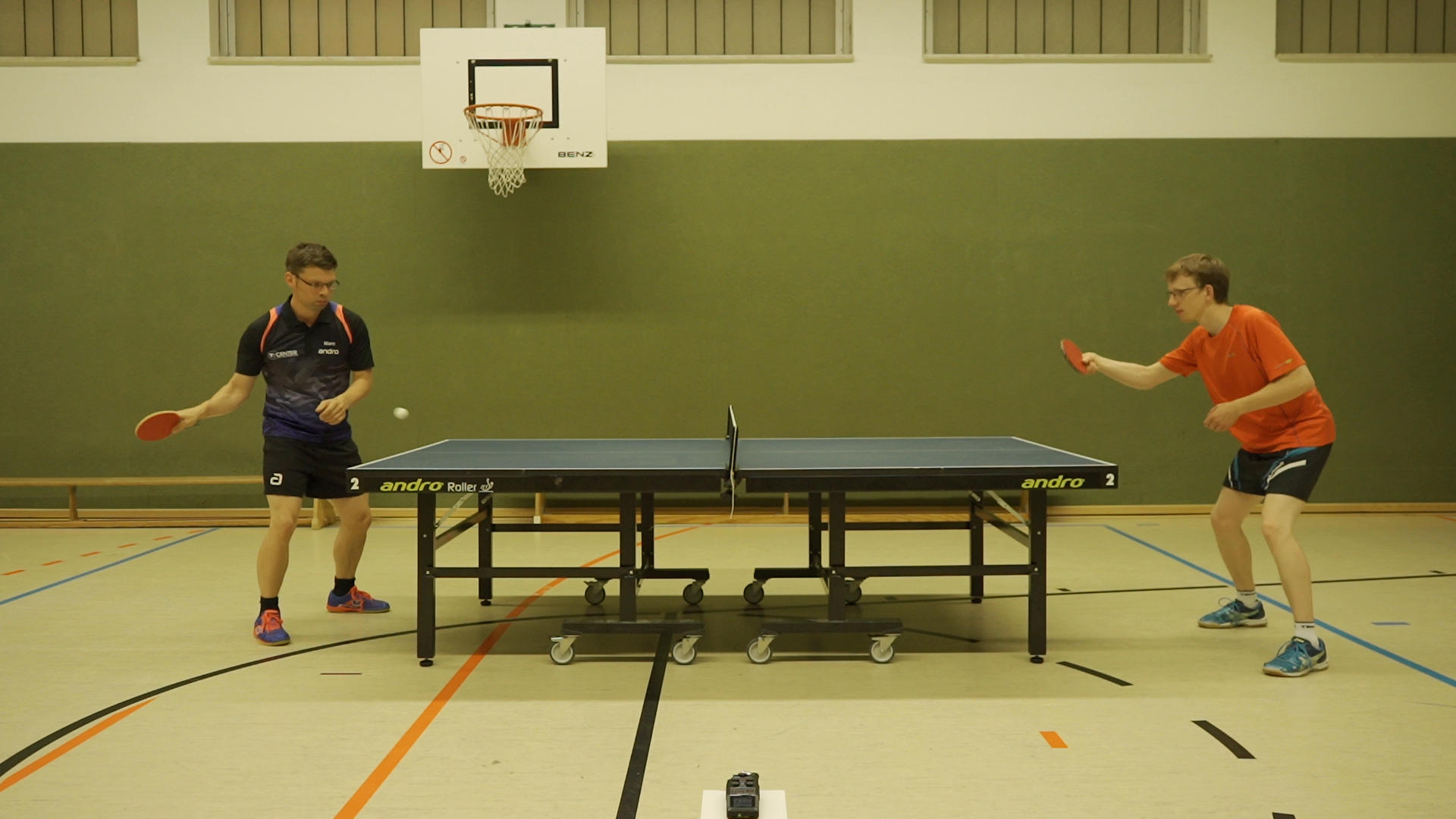Research Projects
Ongoing Projects
Musikpädagogik

SMuW
Für eine inhaltliche und begriffliche Durchdringung von Musizierpraxis ist es notwendig, auf geeignete Kommunikationsformen zuzugreifen.Dies stellt im Fach Musik eine Besonderheit dar: Beim Sprechen über Musik wird häufig sprachliche Bilder (Metaphern) oder Bezüge auf andere Sinnesbereiche zurückgegriffen.Es wird ein Vokabular erforderlich, für den es keinen genuin fachsprachlich musikalischen Wortschatz gibt.
In diesem Projekt wird das Phänomen Sprache – Musik – Wahrnehmung (SMuW) von fünf Forscher:innen aus jeweils verschiedenen Blickwinkeln beforscht: Dabei stehen sowohl das reflektierende Sprechen als auch das Sprechen als performativer Akt im Unterrichtsgespräch und in Lehrwerken im Mittelpunkt.
Hybrid Music Lab
Teaching Digital Music
Funded by the Stiftung für Innovation in der Hochschullehre the project "Music Teaching Digital" was set up at the Hybrid Music Lab in 2021. The aim of the project is the development of a modern curriculum for the integration of new technologies in artistic musical teaching.
Musicians´ Medicine
Music Physiology/Musicians´ Medicine
Supervision: Prof. Dr. med. Dipl. Mus. Hans-Christian Jabusch
Research Coordination: Dr. Gerard Breaden Madden
Co-Authors: Dr. Scott Beveridge, Dr. Steffen Herff
Start: 2023
Abstract:
This project investigates the potential of EMG-based auditory biofeedback to enhance expert sensorimotor control in drummers. Building on prior findings that long-term drumming practice refines muscle activation patterns — characterized by reduced wrist flexor and extensor muscle co-contraction — we are developing a real-time biofeedback system to optimize motor efficiency. Using surface electromyography (sEMG), we will monitor activity in forearm muscles during a range of drumming tasks. Real-time auditory feedback will be generated based on specific EMG features linked to efficient muscle use. We hope that such targeted biofeedback can assist drummers to reduce forearm muscle co-contraction and improve rebound utilization, leading to more stable and economical performance. The technical implementation of this project is underway and data collection is expected to begin in 2025.
Funding: The scientific activities of the IMM are co-financed from tax revenues based on the budget approved by the Saxon State Parliament.
Collaborations, Publications: Research project with international partners (Australia and Colombia). Publication of the scientific results in international journals and at international conferences in the form of lectures/posters is planned.
Music Physiology/Musicians´ Medicine
Supervision: Prof. Dr. med. Dipl. Mus. Hans-Christian Jabusch
Research Coordination: Dr. Gerard Breaden Madden
Co-Authors: Prof. Dr. Eckart Altenmüller, Prof. Dr. Maria Schuppert, Prof. Dr. Michael Pfeifer, Dr. Steffen Herff
Start: 2022
Abstract:
Wind instruments can harbor microorganisms like bacteria and fungi, which may trigger asthma and other respiratory symptoms/disorders, including hypersensitivity pneumonitis (HP), due to inhalation during playing. Although research on the prevalence of respiratory symptoms in wind players is limited, the consequences can be severe. Case reports suggest that symptoms improve with instrument avoidance and proper hygiene. In this ongoing study, we investigate the prevalence of respiratory symptoms in wind players versus non-wind player controls. In addition, we investigate the links between symptoms and instrument hygiene and musicians' knowledge of hygiene practices. Preliminary results show that wind players are more likely to report asthma compared to non-wind players. With respect to hygiene measures, most wind players report never disinfecting their instrument or mouthpiece, nor having ever received specific hygiene-related education. In fact, preliminary findings suggest that regular hygienics might often only be adapted reactively rather than preventatively. This study contributes to our understanding of wind-players' occupational health and has implications for strategies to standardise and normalise instrument hygiene within wind instrument pedagogy.
Funding: The scientific activities of the IMM are co-financed from tax revenues on the basis of the budget approved by the Saxon State Parliament
Collaborations, Publications: Research project with international partners (Germany, Australia). Publication of the scientific results in international journals and at international conferences in the form of lectures/posters is planned.
Music Physiology/Musicians´ Medicine
Supervision: Prof. Dr. med. Dipl. Mus. Hans-Christian Jabusch
Research Coordination: Dr. Gerard Breaden Madden
Co-Authors: Dr. Scott Beveridge, Dr. Steffen Herff, Prof. Dr. med. Eckart Altenmüller
Start: 2020
Abstract:
To improve performance, musicians spend thousands of hours practising, yet how this shapes muscle behaviour is not fully understood. Using surface electromyography, we examined muscle spike patterns in twenty-two drummers performing a uni-manual task at five tempi and with both hands separately. Activity was recorded in the Flexor Carpi Ulnaris and Extensor Carpi Radialis muscles of the forearm using sEMG. Bayesian mixed effects models predicted mean Spike Frequency, Spike Duration, and Number of Peaks per Spike, and how these parameters vary with expertise (Cumulative Life Practice time; in hours). As expected, more experienced drummers showed more consistent timing and less strike velocity asymmetry between hands. Higher levels of expertise were also associated with increased spike frequency, shorter spike duration, and fewer spike peaks, suggesting more efficient and coordinated muscle activation. These findings provide novel insights into how long-term drumming practice contributes to functional adaptations in specific forearm muscles involved in fine motor control.
Funding: This project was funded by the Federal Ministry of Education and Research (BMBF) (01PL17063). The IMM's scientific activities are also co-financed with tax revenue based on the budget approved by the Saxon State Parliament.
Collaborations, Publications: Research project with international partners (Germany, Australia, Colombia). Publication of the scientific results in international journals and at international conferences in the form of oral presentations/posters is planned.
Completed Projects
Musicians´ Medicine
Music Physiology/Musicians´ Medicine
Supervision: Prof. Dr. med. Dipl. Mus. Hans-Christian Jabusch
Research Coordination: Dr. Gerard Breaden Madden
Co-Authors: Dr. Scott Beveridge, Dr. Steffen Herff
Abstract:
In practise-based tasks such as making music, emotion regulation is an important part of optimising one’s performance and attaining personally relevant goals. Functional theories suggest that technically demanding goals may be supported by emotion regulation which prioritises utilitarian (outcome-based) over hedonic (pleasurable) benefits. This project examined how musicians’ practice goals relate to the emotions they seek during practice. While most musicians aim to keep practice enjoyable, those focused on developing expertise may deliberately engage with unpleasant emotions—such as anger or nervousness—in conjunction with pleasant emotions if they believe these states support their goals. Emotion regulation in this context reflects a strategic balance between feeling good and performing well. Personality traits and beliefs about emotional utility shape this process. These findings enhance our understanding of expertise-related mindsets and support the development of more personalised and effective practice strategies.
Funding: This project was funded by the Federal Ministry of Education and Research (BMBF) (01PL17063). The scientific activities of the IMM are also co-financed with tax revenue based on the budget approved by the Saxon State Parliament.
Collaborations, Publications: Research project with international partners (Australia, Colombia). The scientific results have been published in international journals and at international conferences in the form of oral presentations and posters, and will continue to be published. A subtopic of this project was awarded the scientific poster prize at the 2024 Annual Meeting of the German Society for Music Physiology and Musician's Medicine (DGfMM) in Hanover.
Music Pedagogy


Musizieren – Beziehen – Lernen
MuBeLe – diese Abkürzung steht für „Musizieren – Beziehen – Lernen“, einem neuen Forschungsprojekt, das einen Beitrag leisten will zur Professionalisierung der Instrumental- und Gesangspädagogik (IGP) als wissenschaftlicher Disziplin. In fünf Studien werden Musizierpraxis und Vermittlungswege sowohl auf der hochschulischen Ebene als auch in anderen Bildungs- oder Kultureinrichtungen untersucht – mit dem Ziel, die Qualität von Instrumental- und Gesangsunterricht sowie von künstlerisch-pädagogischen Studiengängen nachhaltig zu verbessern.
MuBeLe will Instrumental- und Gesangsunterricht optimieren
Lange Zeit stand in der IGP die Planung und Analyse von Unterricht im Vordergrund. Der Interaktion zwischen Lehrenden und Lernenden wurde kaum Beachtung geschenkt. Gerade diese Wechselwirkung hat jedoch einen entscheidenden Einfluss auf das Lernen. Wechselwirkungen gibt es aber auch beim Musizieren selbst: Hierbei beziehen sich Töne aufeinander und Spielende treten in Beziehung mit sich und anderen.
In MuBeLe werden diese wichtigen Aspekte untersucht. Die Nachwuchswissenschaftlerinnen und Nachwuchswissenschaftler Ophelia Euler, Jonas Brinckmann, Annemarie Michel, Timea Sari und Corinna Stüttgen beschäftigen sich in den kommenden zwei Jahren unter anderem mit folgenden wissenschaftlichen Fragestellungen: Wie kann auf höchstem künstlerischen Niveau pädagogisch kompetent unterrichtet werden? Was macht Musizieren aus? Wie sieht eine gute Beziehung zwischen Lehrperson und Schülerin oder Schüler aus? Wie wird musikalisch gelernt?
Geleitet wird MuBeLe von Prof. Dr. Katharina Bradler, unterstützt durch Vertretungsprofessorin Dr. Sarah-Lisa Beier und Vertretungsprofessor Dr. Daniel Prantl.
MuBeLe ist durch die Europäische Union und die Sächsische Aufbaubank gefördert.


Online Musizieren und Unterrichten im digitalen Hochschulraum
Von März 2022 bis Dezember 2023 werden an der HfM Dresden im Rahmen des Drittmittelprojekts „Online Musizieren und Unterrichten im digitalen Hochschulraum“ (OnMUdiH) des Arbeitskreises E-Learning Möglichkeiten des Online Musizierens und Unterrichtens erprobt und erforscht. Projektleitende sind Prof.in Dr. Katharina Bradler, Dr. Daniel Prantl und Prof.in Dr. Christin Werner.
OnMUdiH soll didaktische Potentiale des Musizierens und Unterrichtens im synchronen und asynchronen Online-Raum aufdecken und auf breiter Basis kommunizieren. Neben technischen Fragen steht insbesondere die künstlerisch-pädagogische Ebene im Fokus: Wie können Akteurinnen und Akteure auch ohne physische Präsenz künstlerisch agieren und guten Unterricht durchführen? Welche eigenen musikalisch-ästhetischen Praxen entwickeln sich durch innovative Formen des digitalen Musizierens?
Diese und weitere Fragen sollen im Rahmen von zwei hochschulübergreifenden Seminarprojekten an der HfM Dresden (Lehramt Musik & Künstlerisch-pädagogische Ausbildung) und der HMT Leipzig (Lehramt Musik) erörtert und praktisch erprobt werden. Unter der Leitung des wissenschaftlichen Mitarbeiters Anselm Vollprecht erproben Studierende im Wintersemester 2022/23 sowie im Sommersemester 2023 Bedingungen und Möglichkeiten des Online-Musizierens und Unterrichtens. Ziel des Projekts ist es, eine umfassende didaktische Handreichung (Materialsammlung, Online-Tutorials u.Ä.) zu erstellen, die zu Barrierearmut der hochschulischen Lehre und der Lehre an Musikschulen beiträgt.
Hier geht es zum Poster des Verbundvorhabens "flexibles und qualitätsgesichertes Lehren und Lernen im virtuellen sächsischen Hochschulraum"
Diese Maßnahme wird mitfinanziert durch Steuermittel auf der Grundlage des von den Abgeordneten des Sächsischen Landtages beschlossenen Haushaltes.

Differenzielles Üben – Bessere Ergebnisse durch kreative Ansätze
Übertragung wesentlicher Erkenntnisse aus der Bewegungslehre und dem Spitzensport auf die musikalische Praxis.
Prof. Thomas Fellow
Judith Beckedorf
Musicology
Stimmforschung
Reuben Scott Walker, Mario Fleischer, Johan Sundberg, Marie Bieber, Hartmut Zabel, Dirk Mürbe
Eine Studie des Studios für Stimmforschung an der Hochschule für Musik Carl Maria von Weber Dresden zur Thematik der Klangentwicklung bei Gesangsstudierenden im Klassikbereichwährend ihres Studiums konnte in einer der international herausragenden wissenschaftlichen Zeitschriften "Journal of the Acoustical Society of America" (JASA) vor wenigen Wochen veröffentlicht werden.
Dabei wurde untersucht, wie sich die Stimmen von 117 Gesangsstudentinnen und -studenten im Verlauf ihres vierjährigen Bachelorstudiums verändern. Analysiert wurden Tonaufnahmenaus den Jahren 2008 bis 2018. Dabei zeigte sich: Sängerinnen und Countertenöre entwickelten eine klarere, weniger behauchte Tonqualität, während Tenöre, Baritone und Bässe ihre akustische Energiebilanz im Verlauf des Studiums zugunsten höherer Frequenzen veränderten. Zudem stimmten die Sängerinnen ihre Vokalformanten zunehmend auf die gesungene Oktave ab und vermieden Resonanzen in der darüberliegenden Oktave.
Diese Veröffentlichung unterstreicht das intensive Zusammenwirken von Forschung und Lehre im Bereich der praktischen Heranbildung junger Sängerinnen und Sänger in der Fachrichtung Gesang in der Zusammenarbeit von Medizinern, Wissenschaftlern und Pädagogen und und liefert ein hervorragendes Zeugnis des hohen Potenzials in diesem Bereich und in der HfM Dresden.
Der Artikel erschien in J. Acoust. Soc. Am. 158, 1989–1998 (2025) und ist zu finden unter https://doi.org/10.1121/10.0039243
